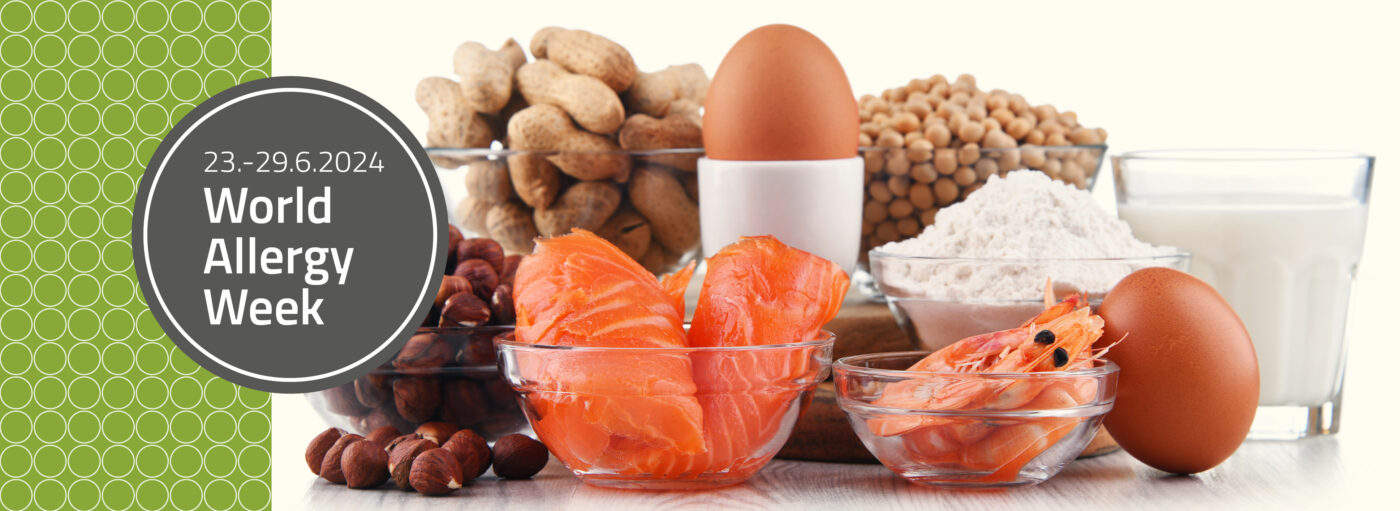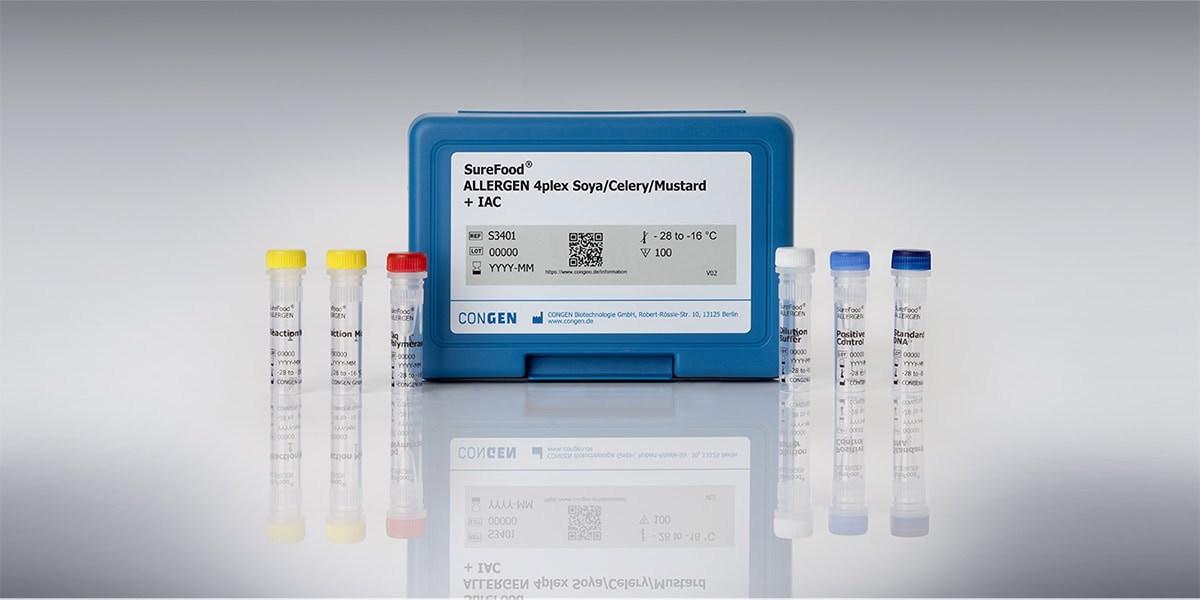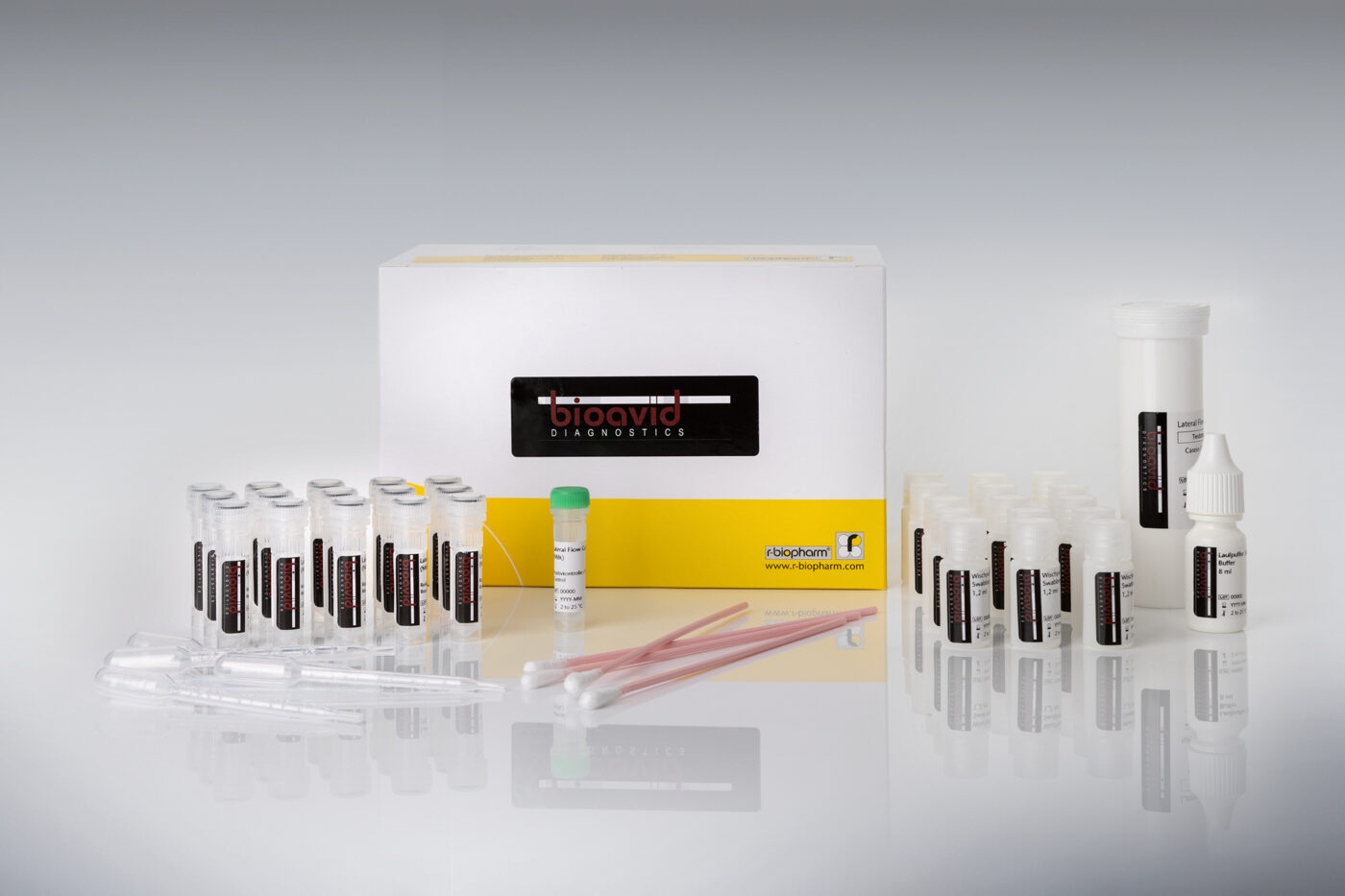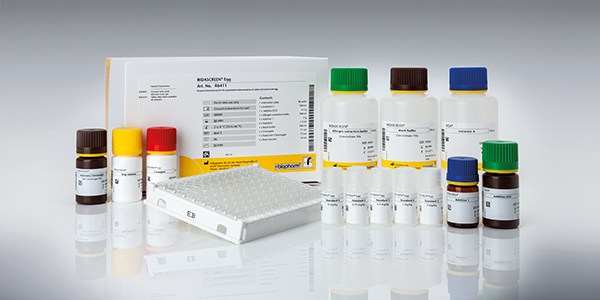
Recent news in Food & Feed Analysis
- Home
- /
- Navigating food allergen testing...
Navigating food allergen testing methods

The World Allergy Week provides an excellent opportunity to raise awareness about food allergies, safety, and testing. In this article, we’ll explore food allergies, recent food recalls due to undeclared allergens, the most common allergens involved, and food testing methods options.
Food allergies
Food allergies remain a global public health issue. Some food allergies, especially peanut, tree nut, shellfish, and fish, are considered among the most lethal ones. These allergens contain proteins that can prompt instant and profound allergic reactions. Upon eating, they can lead to a rapid onset of symptoms such as throat swelling, severe breathing difficulties, plummeting blood pressure, widespread hives, and gastrointestinal distress. Avoiding the consumption of allergenic food is the only effective method to prevent food allergen-related reactions, but accidental consumption still occurs frequently due to insufficient labelling practices, cross-contamination during manufacturing, and miscommunication by staff, posing potential health risks.
Moreover, an increasing number of people follow a vegan diet – a diet based on plants, in which animal products are completely avoided, supplemented with legumes (e.g., soy, lentils, peas), nuts and seeds (e.g., chia, flaxseed) or pseudo-grains (quinoa, buckwheat). Definitely, the product range is expanding to include vegan foods such as milk alternatives (e.g., oat, almond, soy drinks) and cheese or meat substitutes (e.g. soy or pea-based). Unfortunately, it is a misconception that food labelled as ‘Vegan’, is always safe to eat for people who are allergic to milk, eggs, fish and crustaceans or molluscs. The reality of food production means there is still a risk of cross-contamination with animal-based allergens in vegan and plant-based products if produced in the same factory as animal-based products.
Food Recalls and Undeclared Allergens
A study carrying out an analysis of reported recalls from 2016 to 2021 in the UK showed, that from 2016 to 2021, 1036 food recalls were reported by the FSA and FSS. 57.6% allergen-related recalls accounted for more than half of all UK recalls issued, trailed by recalls for microbiological reasons (19.0%), and physical contaminants (16.7%) (Food Control 144 (2023) 109375; Food allergen recalls in the United Kingdom: A critical analysis of reported recalls from 2016 to 2021). To the main undeclared food allergens belong milk, cereals containing gluten, tree nuts, soya, eggs as well as mustard. Reason for the recalls were mainly omission from the list of ingredients of intentionally added foods containing allergens. Followed by cross-contamination, where products were found to unintentionally contain traces of other unwanted allergens, which might have entered at any point throughout the manufacturing stages by accident and mispacks, where products were put in the incorrect packaging. Baked goods, ready-to-eat/heat-and-serve and confectionary account for the highest number of undeclared allergens.
Food Testing Methods
Choosing the right food allergen test method for analyzing food allergens sounds easy. But which allergen testing method to choose? ELISA? Lateral Flow Tests? qPCR? We can offer you different food allergen test methods for most food allergens – but most important is to choose the method that meets your specific requirements. The choice of the analytical method depends on the food types you test as well as the number of samples to be tested, the type of result you want to have – quantitative or qualitative – the available laboratory equipment or the application – product testing or production environment testing.
ELISA-based tests are the method of choice for testing large numbers of samples. In combination with automation solutions, they are ideal for high sample throughput. They offer quantitative results and are widely accepted as official methods or standard methods, for example the RIDASCREEN® Gliadin ELISA is the AOAC Official Method of Analysis for the measurement of gluten in food.
Real-time PCR, or qPCR, tests don’t target a protein but a specific DNA sequence of the allergenic food ingredient. Thus, they are highly specific and can also be used for most processed food samples. Real-time PCR enables screening, quantification or multiplex tests that can detect multiple parameters in one analysis. Simplified and standardized processes allow high sample throughputs, save time and money. Furthermore, it is a great choice for confirmation testing or further species identification, for example, to identify which type of gluten-containing cereal is present.
Lateral Flow Tests are the method of choice for rapid, on-site testing as well as rapid product testing. They are very easy to handle and give a qualitative result – presence or absence. There is no equipment required, but we have developed a very useful tool for the documentation of your results: The RIDA®SMART APP allergen. This is a documentation app, which can be installed on every Android based smartphone and helps you keeping track of your results. Have a look at this product and download the app free of charge.
Food allergen testing
R-Biopharm offers a range of immunochemical (ELISA, lateral flow tests) and molecular biological (PCR) techniques for allergen analysis. Our extensive portfolio includes test kits for almond, casein, crustacean, egg, gluten/gliadin, hazelnut, β-lactoglobulin, lupine, milk, mustard, peanut, sesame, and soy. Conducting allergen analysis requires an allergen-free laboratory to ensure accurate results.

What do others say? We asked our customers why they chose the method they are using and how these methods help them in daily quality control. You will find their answers in our new brochure about food allergen testing solutions. Download the Food Allergens Testing Solutions brochure and learn more about our allergen test method portfolio and find out which method your colleagues have chosen.
Have you found the optimal food allergen test kit? You can contact your local R-Biopharm subsidiary to order here, or, if you are located in Germany, Austria or Switzerland order directly in our shop. Or request more information on the food allergen product pages!



